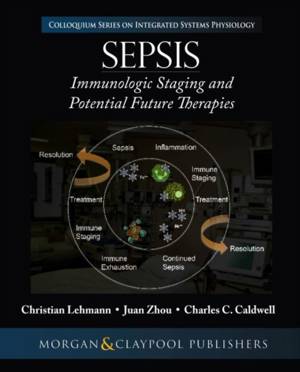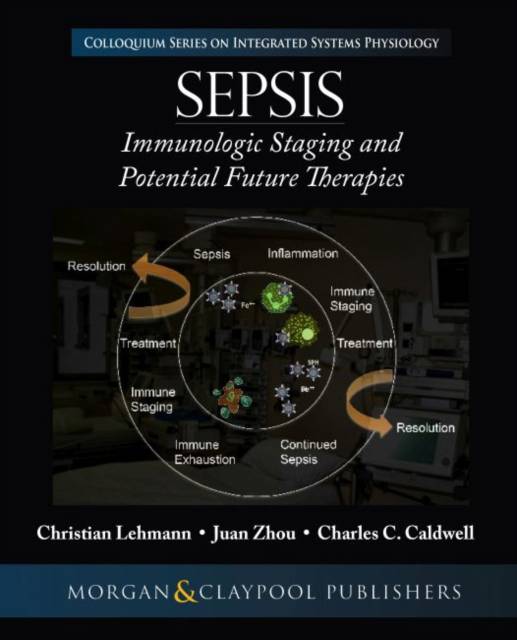
- Afhalen na 1 uur in een winkel met voorraad
- Gratis thuislevering in België vanaf € 30
- Ruim aanbod met 7 miljoen producten
- Afhalen na 1 uur in een winkel met voorraad
- Gratis thuislevering in België vanaf € 30
- Ruim aanbod met 7 miljoen producten
Zoeken
€ 68,95
+ 137 punten
Omschrijving
Sepsis is a life-threatening organ dysfunction caused by a dysregulated host response to infection. Variability in pathogenesis and complex pathophysiology often delay diagnosis and create significant challenges for clinical studies in this group of critically ill patients. Mainly for those reasons, there is no therapy approved so far to overcome the underlying immune dysregulation. This book provides an overview about the state of the art of sepsis diagnostics and potential future therapies. Chapter 1 focuses on the immunologic staging of sepsis-the key for successful treatment of the dysregulated hot response. Chapter 2 reveals similarities in the immune response in sepsis and cancer-opening new avenues for novel therapies. Chapter 3 introduces an important modulator of the immune response-the endogenous cannabinoid system and elucidates its role in organ dysfunction in sepsis. Facing the increasing bacterial resistance to classical antibiotics, Chapter 4 discusses two unique mechanisms to treat infection and inflammation in sepsis: iron chelation, and the sphingosine pathway. The authors, all experts in experimental and clinical sepsis research, seek to provide further understanding of the complexities of the immune response as the physiological basis for the development of new therapeutics in sepsis.
Specificaties
Betrokkenen
- Auteur(s):
- Uitgeverij:
Inhoud
- Aantal bladzijden:
- 91
- Taal:
- Engels
- Reeks:
Eigenschappen
- Productcode (EAN):
- 9781615047567
- Verschijningsdatum:
- 11/09/2017
- Uitvoering:
- Paperback
- Formaat:
- Trade paperback (VS)
- Afmetingen:
- 190 mm x 235 mm
- Gewicht:
- 190 g

Alleen bij Standaard Boekhandel
+ 137 punten op je klantenkaart van Standaard Boekhandel
Beoordelingen
We publiceren alleen reviews die voldoen aan de voorwaarden voor reviews. Bekijk onze voorwaarden voor reviews.











